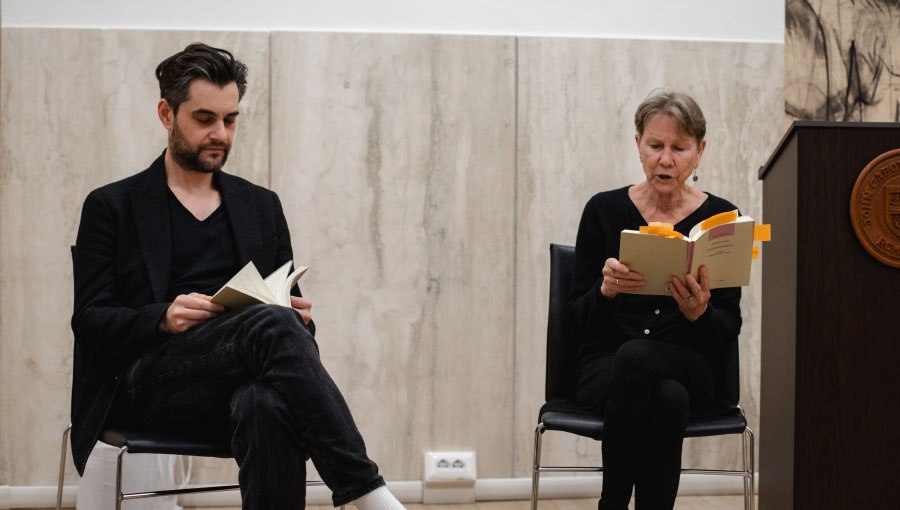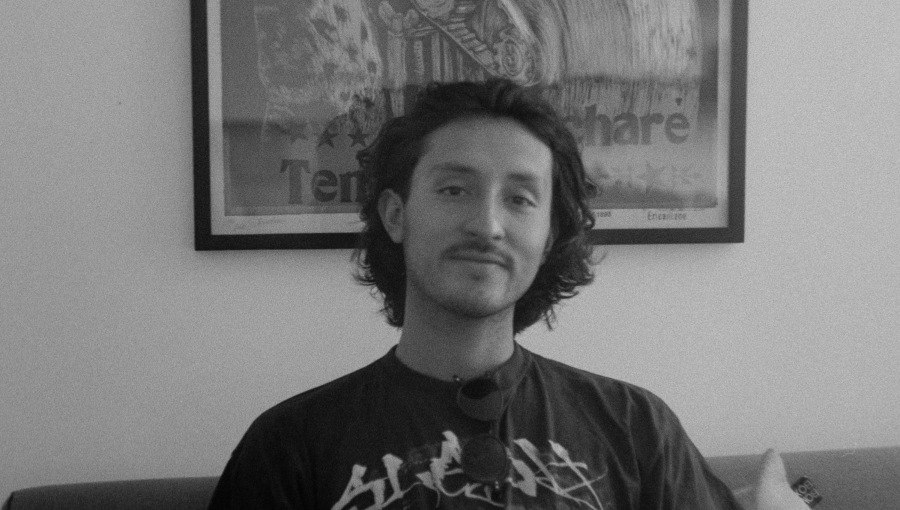La Sinfonia di Emery: A Novel by Ludovico Crisanti Cucchiella
Ludovico Crisanti Cucchiella was born in Rome. He graduated from LUISS before taking Advanced Creative Writing Workshop: Fiction in Summer 2016 with Professor Michael Carroll at JCU. Ludovico recently published his first book La Sinfonia di Emery with Gangemi Editore.
Please tell us about your book La Sinfonia di Emery.
La Sinfonia di Emery is about a boy, Emery, who has overdeveloped hearing, that allows him to listen to more than he can understand. Caged in a numb, inexpressive world where hate shouts and love stays silent, he tries to communicate through music. My love for music sparked the idea. I always felt that music was a sort of magic that allows us to communicate and share things beyond words. I sent the manuscript to 24 different publishers and one of them fell in the love with Emery’s story.
What is the relationship between music and love?
I think that music is love’s favorite language. Music is fundamental. It is a source of inspiration, a source of relief. Music gives me energy, music gives me the freedom to feel what other people feel or have felt. It widens perception and enriches life. It heals loneliness and amplifies happiness.
Name 3 books everyone should read in their lifetime and why.
The Goldfinch by Donna Tartt. It gives you a positive perspective on life, the proof that life despite its hardships and obstacles, tragedies and disasters, is worth living. Song of Solomon by Toni Morrison. It communicates the simple, primitive and precious love that simple and sincere people live. It also teaches us that vanity can be an obstacle. Milkman, the protagonist, starts to live when he leaves his vanity behind, spreads his wings and starts to travel and find his way. It gives us the feeling of relief that we have when we surrender to life, when we are lifted by our destiny. Vanity at times fences us in and makes us live an existence that is not worth living. The Grapes of Wrath by John Steinbeck. It reaffirms the importance of family and friendship, brotherhood, and love. It allows us to feel the relief that only human unity can give.
Tell us about the Advanced Creative Writing Workshop: Fiction. How did what you learned in the course help you write the book?
Prof. Carroll gave me some incredibly useful tips on writing. “You have talent, all you need is proportion.” That really changed my perspective on my own writing. I don’t take criticism lightly so I scrutinized myself to know whether or not I needed more proportion and I found out that the professor was right. I didn’t change my style, but I added some balance to my writing by alternating long sentences with a few occasional short ones to make sure that my readers wouldn’t be strained.
Studying Creative Writing at JCU was extremely useful for me. Talent is innate, it can’t be taught. But the course gave me a fresh perspective on my writing and the chance to see the world through someone else’s eyes. It is useful to change perspective at times and to see what other people think about your work. Academic and professional discussions can be very useful as long as you are able to consider the advice that you receive in order to decide whether or not you should follow it. Prof. Carroll advised me to dose digressions and highly descriptive passages within my work to make the narrative more fluid. He is very considerate when it comes to preserving the writer’s original style. He respects the author’s authentic voice and never forces his own ideas on anyone. He has the unique ability to preserve the writer’s voice while at the same time giving useful stylistic tips to help his students experiment with new literary tools and refine their style.






